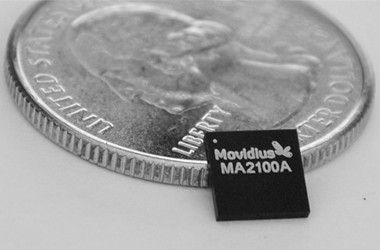CV technologies are advancing rapidly today, with sophisticated methods and programs that go far beyond use in the areas of basic research and factory automation. Meanwhile, we have computer chips that enable the processing of visual data in real time, eliminating their need for temporary storage. Furthermore, mobile devices owe their remarkable commercial success to the functionality of taking photos and videos. However, for the simulation of sight, the demands in terms of energy consumption and the required computing power are very high. Because of the limited capacity of contemporary batteries, image processing applications are only available for short periods and are not suitable for extensive use requirements.
“The challenge is to reduce the energy required for far reaching exploitation and processing of visual information to the optimal possible,” said Prof. Dr. Didier Stricker, Head of the Department of Augmented Vision at the German Center for Artificial Intelligence (DFKI) in Kaiserslautern. The aim of “Eyes of Things” project is to develop innovative, energy efficient applications that function both independently and also when embedded in mobile devices. This is what the team or researchers around Professor Stricker hopes to achieve over the next three years as they work on integrating the first prototypes and a basic platform for applications, optimize the camera systems, and reduce energy consumption - all in order to render optimal and effective support to the user.
The core technology is a miniature camera placed on a processor chip similar to previous uses in endoscopy for medical purposes. It is first being applied in video-based “life logging” and for use in intelligent toys. Additionally, the system can be integrated with interactive museum tours to simplify automatic and customized playback of the audio commentary.
DFKI is working within the framework of the “EoT” project with seven European partners from industry and research to develop promising new business models. The project was launched in January 2015 to last for three years until the end of 2017 as a part of Horizon 2020, a European Framework Program for research and innovation. The project is funded by the EU with almost five million euros. Lead manager of the project is the University of Castilla-La Mancha in Ciudad Real, Spain.
About the Augmented Vision research group:
The core activity of the research “Augmented Vision” is the development of innovative solutions in the fields of Computer Vision, Sensor Interpretation and Fusion, Human-Centered Visualization, Virtual and Augmented Reality. The activities range from basic and academic research to the development of specific industrial prototypes, and covers software and hardware, as well as consulting services. The work is carried out in the context of basic research grants, publicly founded national and European research projects, and direct orders from the industry. The research group has been founded in 2008, is located in Kaiserslautern and directed by Prof. Dr. Didier Stricker.
Contact:
Dr. Alain Pagani
German Research Center for Artificial Intelligence
Research Department Augmented Vision
Trippstadter Straße 122
67663 Kaiserslautern, Germany
e-mail: Alain.Pagani@dfki.de
Phone: +49 631 20575-3530


